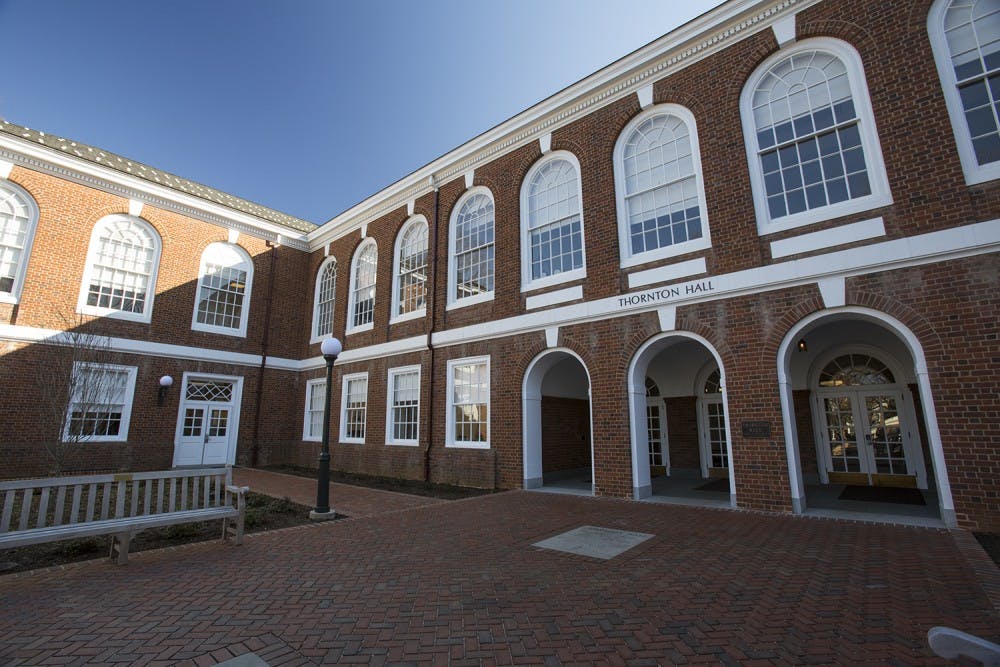In 2015, the University became the first state flagship to attribute more than a third of all matriculating engineering degrees to women. More than two years later and after notable diversity efforts on behalf of the Engineering School — including a speaker series and a new scholars program — members of the Engineering community reflected on the progress made since.
Following the first diversity-oriented speaker series, which spanned from September 2016 to February 2017, the Office of Diversity and Engagement began its second-annual speaker series in September 2017. Each of the nine events in the series continue into 2018 and are free and open to both University students and the greater Charlottesville community. All events are publicly available through a livestream online.
Thomas Pilnik, program coordinator for the Engineering school’s Office of Diversity and Engagement, said he hopes students understand the progress being made through diversity efforts.
“If students leave with a new perspective, or engaging in challenging and intentional conversation, or inspired to help others, or feeling like they belong here, then that is a success,” Pilnik said.
First-year Engineering student Emily Fedroff said she thought the University worked to make its students feel welcome no matter their background, emphasizing that the Engineering School is no different from the rest of the University.
“The professors here understand the importance of diversity in school and the workplace,” Fedroff said. “[The events] were advertised very well and their subject matter was very appealing to many students.”
Cole Latvis, a first-year Engineering student, said the speaker series was a good idea but was limited in some ways. Latvis said that he thought some of the talks, particularly the one featuring Cornel West, were “limited in their accessibility.”
“Speakers tend to draw in people who already agree with them,” Latvis added. “It seems to me that everyone within the program — with few exceptions — understands the value of diversity, or at least does not deny it.”
The Engineering School has previously addressed inclusion and diversity in other ways. Several Science, Technology and Society courses — in which diversity and social progress are frequent themes — are required for graduation from the engineering program. Last fall, the University’s Bicentennial Scholars fund matched a $15 million dollar endowment for the Clark Scholars program, which is aimed at funding engineering students from underserved backgrounds.
John Gates, associate dean for Diversity and Engagement in the Engineering School, indicated the importance of the series and the University’s recent successes.
“Not only do we have the highest female enrollment and graduation rate of a public university in engineering in the country, we have the highest four-year graduation rates in the country for Blacks, Hispanics, Asians, Whites and mixed-race students,” Gates said.
Additionally, many of the talks in the series had accompanying musical performances, featuring artists such as pianist Dana Kristina-Joi Morgan and singer Candace Potts — both African-American women — who performed at the Cornel West and Francis Collins’ lectures, respectively.
Gates said this was inspired by his experience while attending Morehouse College, a historically black university, and that the talks were very much in line with an experience one might have had at a historically black college or university.
“Sometimes words don’t penetrate the heart in the same way that music does,” Gates said.
Gates also said the series has provided an opportunity to engage with the Charlottesville community, with many members attending the events.
“That was a message following the events of Aug. 11 and 12,” Gates said. “We are one people, we are a united people and we are a focused people. We have something to say.”
He totaled the number of people who had attended or viewed the talks to be in the thousands, with both domestic and international interest.
“I get notes from students and faculty all the time,” Gates said. “We have had faculty members assign the series as part of their assignments. It now has the inclusion of almost all the schools. Everyone is involved. We’re very happy with the way it turned out.”







